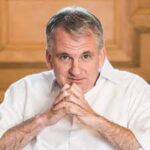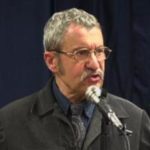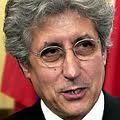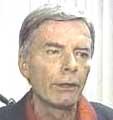Democracy 3-Pack
3 CDs
Includes:
Polarization Can Kill Democracy
It’s axiomatic that political discourse in the U.S. is becoming more and more extreme. There’s even talk of a coup. In textbook coups, martial law is declared. The internet and phones go dead. The opposition is jailed or killed. This is how we think of authoritarian regimes beginning. Yet Steven Levitsky says, “Democracies may die at the hands not of generals but of elected leaders.” He lays out a four-part test for identifying authoritarian leaders: rejecting democratic institutions, denying the legitimacy of political opponents, tolerating or encouraging violence and curtailing civil liberties. He notes, “With the exception of Richard Nixon, no major-party presidential candidate met even one of these four criteria over the last century. Donald Trump met all of them.” If we are not careful polarization can kill democracy.
The State of American Democracy
There’s a new Jim Crow in the U.S. This 2.0 version is legislation passed by politicians who mouth pieties about protecting our sacred right to vote and the integrity of elections. After one of the most secure and verified elections in U.S. history there is a wave of voter suppression laws being proposed across the country. According to the Brennan Center for Justice, Republican legislators in 43 states have introduced more than 250 bills that would make it harder to vote. These measures primarily seek to impose stricter voter ID requirements, reduce the number of polling places, limit mail drop boxes and early voting. These actions are an open assault on the 1965 Voting Rights Act that Dr. King, John Lewis and so many others fought for. What’s going on with American democracy?
Capitalism
Discussions about democracy probably start in Athens about 2500 years ago. A truism is society is democratic to the extent that its citizens play a meaningful role in managing public affairs. Democracy is located within the capitalist economic system infamous for producing colossal inequality. There's no level playing field, as great income and wealth translate into political power for the haves at the expense of the have-nots. We have procedural democracy: elections, broadcast debates, primaries, etc. Citizens are largely marginalized, overwhelmed by big money and powerful lobbies. Look at the widespread demand to ban assault weapons of war or for universal single-payer health care or protect the environment or affordable housing. People want those things but elites have a simple message. Vote. Then go home and leave everything to us. Actual democracy is hollowed out. A Davos-type class rules. Recorded at the University of Colorado.
Speakers

Steven Levitsky
Steven Levitsky is Professor of Government at Harvard. His research interests focus on Latin America and include political parties, authoritarianism and democratization, and weak and informal institutions. He is co-author of How Democracies Die.

Timothy Snyder
Timothy Snyder is the Richard C. Levin Professor of History at Yale and a permanent fellow at the Institute for Human Sciences in Vienna, Austria. He is the author of Black Earth: The Holocaust as History and Warning, Our Malady and On Tyranny.

Michael Parenti
Michael Parenti is a leading independent political analyst and scholar. Cornel West calls him, “a towering prophetic voice.” He has taught at major colleges and universities in the U.S. and abroad. He is the author of numerous books including Democracy for the Few, Power and the Powerless, Superpatriotism, Against Empire, and The Assassination of Julius Caesar.






Reviews
There are no reviews yet.